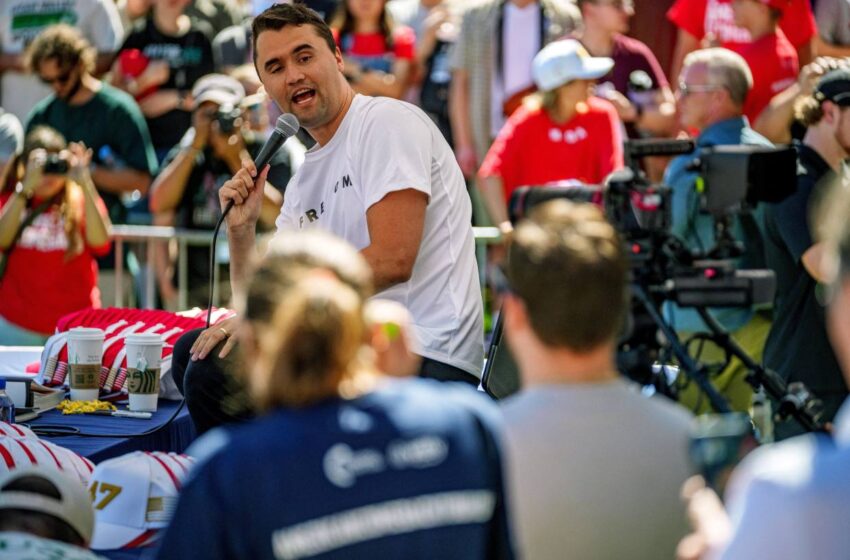No one is safe: What Charlie Kirk’s death reveals about America’s gun crisis

Late Turning Point USA founder, Charlie Kirk. Photo Credit- The Wall Street Journal
The irony is as sharp as it is tragic. Charlie Kirk, a man who devoted much of his public life to defending America’s expansive gun rights, fell victim to the very system he championed. His death in a hail of bullets not only stunned political observers but also reopened old wounds in a nation long divided over firearms. For critics, it was a bitter symbol of the dangers embedded in America’s gun culture; for supporters, it was a painful reminder that even staunch defenders are not immune to the violence they defend as a constitutional freedom.
The Advocate Who Preached Firearms Freedom
Charlie Kirk built his career on confrontation, conviction, and an unrelenting defense of the Second Amendment. As the founder of Turning Point USA, he stood as a prominent voice for young conservatives who saw gun ownership not just as a right but as a cornerstone of liberty. At rallies, on podcasts, and across social media, he argued that “an armed citizen is a free citizen,” insisting that more guns in the hands of responsible Americans meant greater safety, not less.
READ ALSO
Who killed Charlie Kirk? What we know so far
Charlie Kirk shot dead: What to know about Turning Point USA founder
But this conviction was never free from controversy. Each time America faced another mass shooting—from schools to churches to shopping centers—Kirk stood firmly against stricter regulations. To him, legislation aimed at limiting access to firearms punished law-abiding citizens while doing little to deter criminals. His message resonated deeply with his base, many of whom saw him as a fearless defender of freedoms under siege.
A Violent End in a Culture of Guns
The circumstances of Kirk’s killing highlight the paradox of his advocacy. He was not felled in a foreign conflict zone or by a shadowy assassin in a political drama, but by gunfire in the United States—where firearm deaths have become tragically ordinary. The details of his murder are still under investigation, but the weapon of choice was unmistakably American: the gun, the same tool he defended until his last days.
In a nation where more than 40,000 gun-related deaths occur annually—through homicides, suicides, and accidents—Kirk’s demise reflects a system that allows firearms to proliferate with minimal barriers. Whether targeted or caught in senseless violence, his end underscores a truth critics have long asserted: no one, not even the staunchest advocate, is safe in a society awash with guns.
The Opposition: A Nation Tired of Bloodshed
For decades, activists, lawmakers, and grieving families have called for a recalibration of America’s relationship with firearms. They point to nations like Australia and the UK, where stricter gun laws following mass shootings led to dramatic declines in gun violence. In the U.S., however, reform efforts often hit a wall, blocked by political lobbying, cultural identity, and a Constitution written in another era.
Kirk’s killing has reignited these calls. Gun-control advocates argue that his death is the most chilling proof that America’s gun culture spares no one—not celebrities, not politicians, not even its most vocal defenders. They see his fate as an indictment of a system that prizes access to guns over the safety of citizens.
The Irony of Principle
There is a haunting paradox at the heart of Kirk’s story. His brand was built on a defiant defense of guns as instruments of safety and empowerment. Yet, his life was claimed by the very danger critics have long associated with unchecked firearm access. He believed that armed citizens could protect themselves from harm; his end illustrates that a society saturated with guns often makes everyone a potential target.
Some of his supporters frame his death as a personal tragedy divorced from his beliefs. But for his opponents, it is inseparable—a narrative thread that binds his advocacy to his demise. To them, Kirk’s killing is not merely a crime but a cautionary tale, one that illuminates the flaws of a philosophy that has cost thousands of lives.
A Nation at a Crossroads
Charlie Kirk’s death does not resolve the gun debate—it intensifies it. His story will be told on campaign trails, in congressional hearings, and in living rooms where parents wonder if their children are safe at school. For some, he will remain a martyr of freedom, a man who lived and died believing in the right to bear arms. For others, he is the most tragic evidence yet that America’s permissive gun laws have created a cycle of violence no ideology can escape.
What remains is the inescapable reality: Charlie Kirk, once the face of an uncompromising gun-rights movement, became another casualty of America’s gun culture. In death, he embodies the very contradictions that keep the nation locked in its most enduring and devastating debate.

